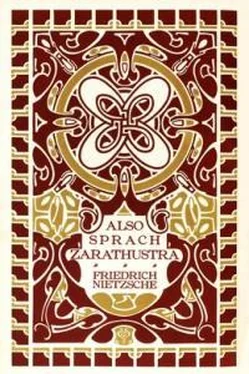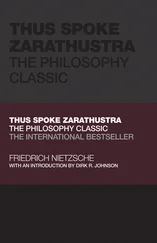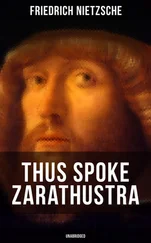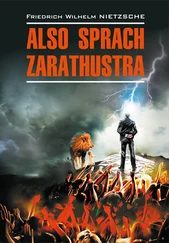Ye higher men, free the sepulchres, awaken the corpses! Ah, why doth the worm still burrow? There approacheth, there approacheth, the hour,—
—There boometh the clock–bell, there thrilleth still the heart, there burroweth still the wood–worm, the heart–worm. Ah! Ah! THE WORLD IS DEEP!
6.
Sweet lyre! Sweet lyre! I love thy tone, thy drunken, ranunculine tone!—how long, how far hath come unto me thy tone, from the distance, from the ponds of love!
Thou old clock–bell, thou sweet lyre! Every pain hath torn thy heart, father–pain, fathers'–pain, forefathers'–pain; thy speech hath become ripe,—
—Ripe like the golden autumn and the afternoon, like mine anchorite heart—now sayest thou: The world itself hath become ripe, the grape turneth brown,
—Now doth it wish to die, to die of happiness. Ye higher men, do ye not feel it? There welleth up mysteriously an odour,
—A perfume and odour of eternity, a rosy–blessed, brown, gold–wine–odour of old happiness,
—Of drunken midnight–death happiness, which singeth: the world is deep, AND DEEPER THAN THE DAY COULD READ!
7.
Leave me alone! Leave me alone! I am too pure for thee. Touch me not! Hath not my world just now become perfect?
My skin is too pure for thy hands. Leave me alone, thou dull, doltish, stupid day! Is not the midnight brighter?
The purest are to be masters of the world, the least known, the strongest, the midnight–souls, who are brighter and deeper than any day.
O day, thou gropest for me? Thou feelest for my happiness? For thee am I rich, lonesome, a treasure–pit, a gold chamber?
O world, thou wantest ME? Am I worldly for thee? Am I spiritual for thee? Am I divine for thee? But day and world, ye are too coarse,—
—Have cleverer hands, grasp after deeper happiness, after deeper unhappiness, grasp after some God; grasp not after me:
—Mine unhappiness, my happiness is deep, thou strange day, but yet am I no God, no God's–hell: DEEP IS ITS WOE.
8.
God's woe is deeper, thou strange world! Grasp at God's woe, not at me! What am I! A drunken sweet lyre,—
—A midnight–lyre, a bell–frog, which no one understandeth, but which MUST speak before deaf ones, ye higher men! For ye do not understand me!
Gone! Gone! O youth! O noontide! O afternoon! Now have come evening and night and midnight,—the dog howleth, the wind:
—Is the wind not a dog? It whineth, it barketh, it howleth. Ah! Ah! how she sigheth! how she laugheth, how she wheezeth and panteth, the midnight!
How she just now speaketh soberly, this drunken poetess! hath she perhaps overdrunk her drunkenness? hath she become overawake? doth she ruminate?
—Her woe doth she ruminate over, in a dream, the old, deep midnight—and still more her joy. For joy, although woe be deep, JOY IS DEEPER STILL THAN GRIEF CAN BE.
9.
Thou grape–vine! Why dost thou praise me? Have I not cut thee! I am cruel, thou bleedest—: what meaneth thy praise of my drunken cruelty?
"Whatever hath become perfect, everything mature—wanteth to die!" so sayest thou. Blessed, blessed be the vintner's knife! But everything immature wanteth to live: alas!
Woe saith: "Hence! Go! Away, thou woe!" But everything that suffereth wanteth to live, that it may become mature and lively and longing,
—Longing for the further, the higher, the brighter. "I want heirs," so saith everything that suffereth, "I want children, I do not want MYSELF,"—
Joy, however, doth not want heirs, it doth not want children,—joy wanteth itself, it wanteth eternity, it wanteth recurrence, it wanteth everything eternally–like–itself.
Woe saith: "Break, bleed, thou heart! Wander, thou leg! Thou wing, fly! Onward! upward! thou pain!" Well! Cheer up! O mine old heart: WOE SAITH: "HENCE! GO!"
10.
Ye higher men, what think ye? Am I a soothsayer? Or a dreamer? Or a drunkard? Or a dream–reader? Or a midnight–bell?
Or a drop of dew? Or a fume and fragrance of eternity? Hear ye it not? Smell ye it not? Just now hath my world become perfect, midnight is also mid–day,—
Pain is also a joy, curse is also a blessing, night is also a sun,—go away! or ye will learn that a sage is also a fool.
Said ye ever Yea to one joy? O my friends, then said ye Yea also unto ALL woe. All things are enlinked, enlaced and enamoured,—
—Wanted ye ever once to come twice; said ye ever: "Thou pleasest me, happiness! Instant! Moment!" then wanted ye ALL to come back again!
—All anew, all eternal, all enlinked, enlaced and enamoured, Oh, then did ye LOVE the world,—
—Ye eternal ones, ye love it eternally and for all time: and also unto woe do ye say: Hence! Go! but come back! FOR JOYS ALL WANT—ETERNITY!
11.
All joy wanteth the eternity of all things, it wanteth honey, it wanteth lees, it wanteth drunken midnight, it wanteth graves, it wanteth grave–tears' consolation, it wanteth gilded evening–red—
—WHAT doth not joy want! it is thirstier, heartier, hungrier, more frightful, more mysterious, than all woe: it wanteth ITSELF, it biteth into ITSELF, the ring's will writheth in it,—
—It wanteth love, it wanteth hate, it is over–rich, it bestoweth, it throweth away, it beggeth for some one to take from it, it thanketh the taker, it would fain be hated,—
—So rich is joy that it thirsteth for woe, for hell, for hate, for shame, for the lame, for the WORLD,—for this world, Oh, ye know it indeed!
Ye higher men, for you doth it long, this joy, this irrepressible, blessed joy—for your woe, ye failures! For failures, longeth all eternal joy.
For joys all want themselves, therefore do they also want grief! O happiness, O pain! Oh break, thou heart! Ye higher men, do learn it, that joys want eternity.
—Joys want the eternity of ALL things, they WANT DEEP, PROFOUND ETERNITY!
12.
Have ye now learned my song? Have ye divined what it would say? Well! Cheer up! Ye higher men, sing now my roundelay!
Sing now yourselves the song, the name of which is "Once more," the signification of which is "Unto all eternity!"—sing, ye higher men, Zarathustra's roundelay!
O man! Take heed!
What saith deep midnight's voice indeed?
"I slept my sleep—,
"From deepest dream I've woke, and plead:—
"The world is deep,
"And deeper than the day could read.
"Deep is its woe—,
"Joy—deeper still than grief can be:
"Woe saith: Hence! Go!
"But joys all want eternity–,
"–Want deep, profound eternity!"
In the morning, however, after this night, Zarathustra jumped up from his couch, and, having girded his loins, he came out of his cave glowing and strong, like a morning sun coming out of gloomy mountains.
"Thou great star," spake he, as he had spoken once before, "thou deep eye of happiness, what would be all thy happiness if thou hadst not THOSE for whom thou shinest!
And if they remained in their chambers whilst thou art already awake, and comest and bestowest and distributest, how would thy proud modesty upbraid for it!
Well! they still sleep, these higher men, whilst I am awake: THEY are not my proper companions! Not for them do I wait here in my mountains.
At my work I want to be, at my day: but they understand not what are the signs of my morning, my step—is not for them the awakening–call.
They still sleep in my cave; their dream still drinketh at my drunken songs. The audient ear for ME—the OBEDIENT ear, is yet lacking in their limbs."
—This had Zarathustra spoken to his heart when the sun arose: then looked he inquiringly aloft, for he heard above him the sharp call of his eagle. "Well!" called he upwards, "thus is it pleasing and proper to me. Mine animals are awake, for I am awake.
Читать дальше











